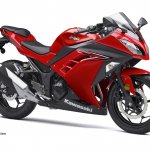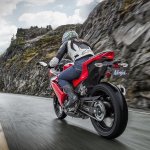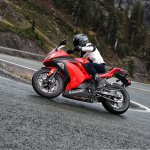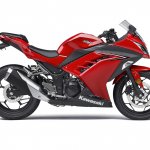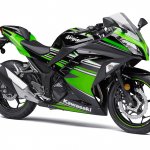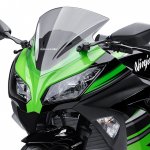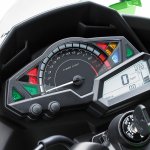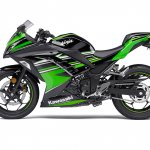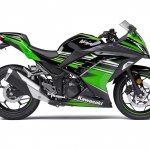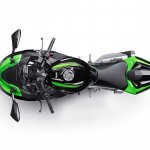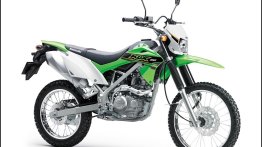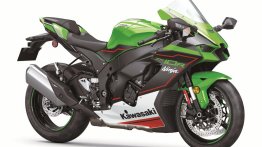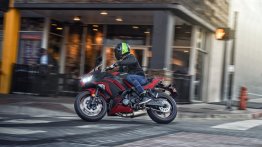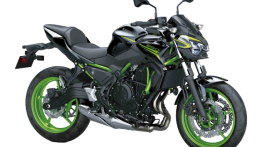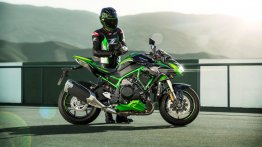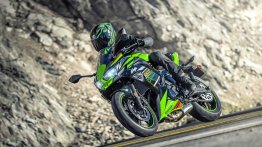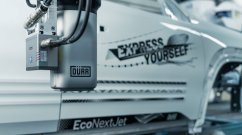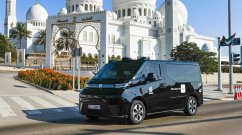The Kawasaki Ninja 300 is positioned against the Yamaha R3 and KTM RC 390.
The Kawasaki Ninja 300 has been introduced in its 2017 avatar for the United States. The standard trim remains unchanged but the Winter Test Edition gains a wider rear tyre and a few cosmetic changes.
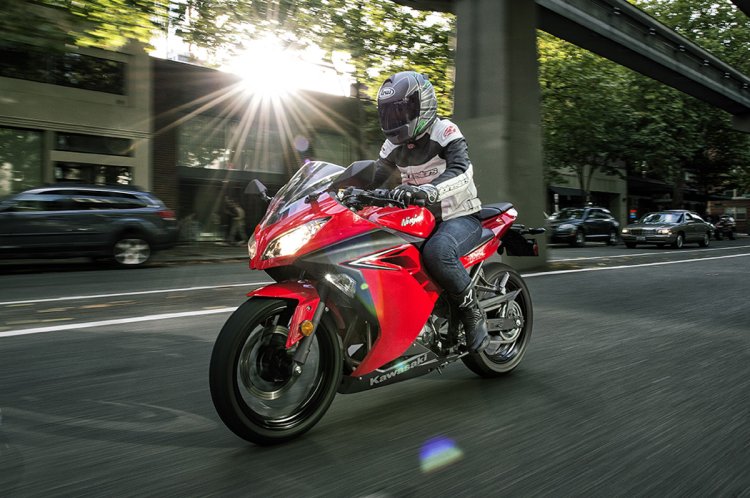
The powertrain is the same parallel twin 296 cc, DOHC, liquid-cooled mill coupled to a 6 speed gearbox and assist and slipper clutch. It gets dual 32 mm throttle bodies. The exact output has not been specified but it can be expected to be the same as the 2016 edition. In the 2016 Kawasaki Ninja 300, the engine is capable of producing 39 PS of maximum power at 11,000 rpm and 27 Nm of peak torque at 10,000 rpm.
The instrumentation is the same mix of analogue and digital, and continues to miss out on gear position indicator. The bike is suspended over 37 mm telescopic forks up front and uni-trak 5 way adjustable mono shock in the rear. Brakes include a 290 mm petal disc with 2 piston caliper in the front and 220 mm petal unit in the rear with 2 piston caliper. ABS is optional.
The US market also gets a KRT edition with graphic changes and ABS as standard. A third model has also been offered called as the Kawasaki Ninja 300 Winter Test Edition. While the powertrain remains the same, this one gets a 150 mm rear tyre (standard model gets a 140 mm unit). It gets a matte black colour and graphic scheme following official racing livery of Kawasaki’s WSBK team for winter testing. The Kawasaki Ninja 300 Winter Test Edition also gets a rear seat cowl and a taller windshield.
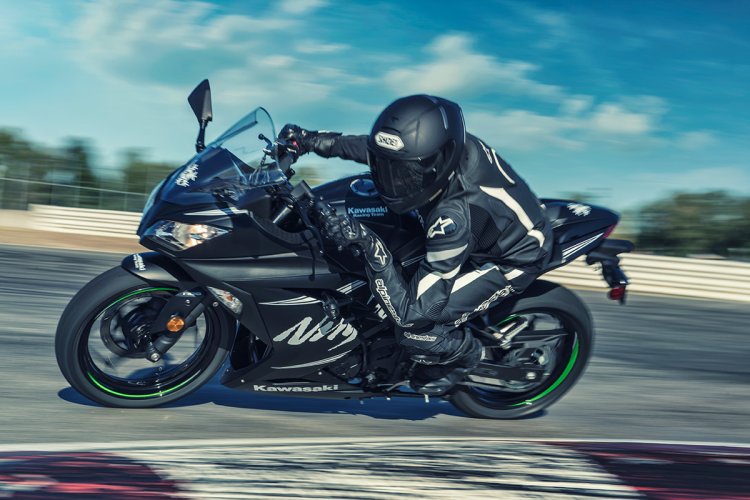
Kawasaki has priced the 2017 Kawasaki Ninja 300 range at:
- Kawasaki Ninja 300 non-ABS: USD 4,999
- Kawasaki Ninja 300 ABS: USD 5,299
- Kawasaki Ninja 300 KRT Edition: USD 5,499
- Kawasaki Ninja 300 Winter Test Edition: USD 5,599


